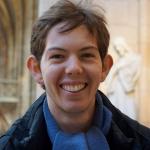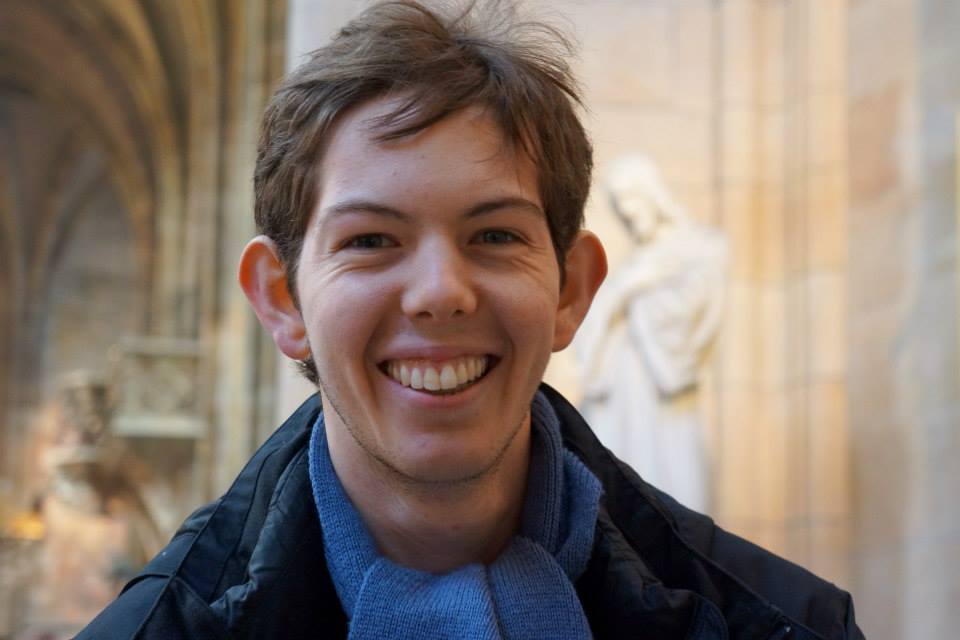Rupert Coy: “For the most part, it is a labour of love” | A day in the life blog

April 2, 2019 by Bruno Martin
“For the most part, it is a labour of love”
Blog: A day in the life of a physicist
Meet Rupert Coy, 25-year-old Australian-British researcher at CNRS / University of Montpellier

Which is your area of research?
Broadly speaking, Physics beyond the Standard Model. I work on building mathematical models of hypothetical new particles. The research is motivated by a range of incredibly interesting questions, from “What is dark matter?” to “How do neutrinos obtain their tiny mass?”. It is theoretical but also phenomenological, which means that I pay attention to how such models can be tested, either in experiments like the Large Hadron Collider or from their astrophysical and cosmological implications.
How do you test a hypothesis of theoretical physics?
There are two levels of testing for us. The first is purely mathematical. The framework for theoretical particle physics is Quantum Field Theory, which essentially combines quantum mechanics with special relativity. We try to explore what is possible within this framework and test what types of models are allowed by mathematics.
The second is, of course, experimental—this is at the heart of science. Good models should not only meet constraints from past experiments (this is an important first step, and increasingly tricky as experiments study particles with ever-growing precision), they should also make predictions for current and future ones. The more general a prediction is, the better. For instance, there might be an unknown parameter in a model. A prediction which doesn’t depend on the value of that parameter is particularly strong because you can test that hypothesis without needing to measuring the parameter. One part of the job is making strong and easily testable predictions.
What is it like to do a PhD?
The most striking thing, and the most wonderful, is just how much one learns over the course of a PhD. The first months involved a period of intense reading as I started to appreciate just how immense the world of particle physics is, but to be honest this period never really ended. I am still constantly—virtually every week—reading or hearing about new concepts and ideas, learning about the structures which make up the known (and perhaps unknown) universe.
It is very sincerely a pleasure and a privilege to have such an amazing opportunity. Of course, it is constantly challenging and requires a lot of work, and when I’m doing long calculations or have a seemingly unending reading list it’s not particularly enjoyable. But for the most part, it is a labour of love.
How sociable is your work?
There’s a very friendly atmosphere in the Lab: the students and postdocs go out for drinks, celebrate each other’s birthdays etc. Our daily lunch group consists of 1st year PhD students, well-known Professors and everything in between. Beyond that, summer schools and conferences are a great way to meet new scientists or catch-up with those I already know. Schools in particular usually involve a couple of weeks spending almost every waking moment with the other students: at lectures, at mealtimes, playing sport or music together, and studying together. It’s tremendously enjoyable to spend time with such passionate, intelligent and like-minded people.
The students and postdocs in the Elusives network are a small but closely-knit group. We see each other a couple of times a year at various scientific events and it’s always great fun. And thankfully the advent of social media means we still stay in touch even though our Labs are dotted across western Europe.
A typical day of science:
Morning
I start the day by browsing the arXiv server over breakfast. This is the daily list of preprints—the physicist’s newspaper, really. There are typically 20-30 papers. I look at titles and abstracts, searching for those relevant to my current work or general interests, like dark matter, axions and flavour physics. Some days the arXiv is fairly barren, other days I’ll download four or five papers to my ‘to-read’ list. If something really catches my eye, I’ll start reading it on the tram to Uni. Then at the Lab, I continue on with my work, usually by trying to finish whatever I was stuck on the previous evening.
Lunch
We go to lunch in a regular group. The food in Montpellier is excellent quality for a University canteen, the conversation is always interesting and usually about physics.
Afternoon
Often on Thursdays, we have a seminar from a visitor just after lunch. It’s a great way to hear about ongoing work in the field and can even be the launchpad for new collaborations. Otherwise, the afternoon involves a lot of working and reading. I’m lucky to have close contact with my supervisor: virtually every day we will discuss my research. On busy days it’s just a quick update and a question or two over a cup of tea, but frequently it’s for an hour or two with a blackboard.
Evening
I live close to a pool and try to swim a couple of evenings a week for about 45 minutes, sometimes I go to a language exchange pour améliorer mon français. Then after dinner, I work a little more. By this time my family and friends in Australia are waking up, so it’s also a good time to keep in touch with them.


